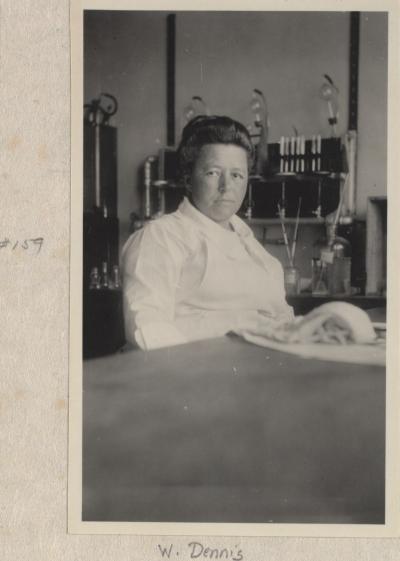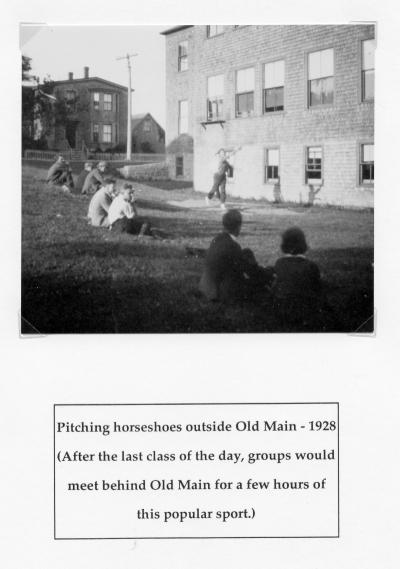Matching Items (1,500)
Filtering by
- Creators: Marine Biological Laboratory Archives

Description
Ethnic identity has consistently been associated with Latino youths' psychosocial well-being; however, an area that has received much less attention is how parents' characteristics inform their ethnic socialization efforts and, in turn, youths' ethnic identity. In addition, we know little about how this process unfolds in specific at-risk samples of youth, such as adolescent mothers. Thus, the current prospective study examined how mothers' cultural characteristics informed adolescents' and mothers' reports of ethnic socialization, and how this, in turn, informed adolescents' ethnic identity exploration and resolution among a sample of 193 adolescent mothers and their mothers. In addition, the current study tested whether mothers' ethnic identity affirmation was directly related to adolescents' ethnic identity affirmation over time. Results indicated that mothers' familism was associated with increases in mothers' reports of maternal ethnic socialization, and, in turn, with increases in ethnic identity exploration for foreign-born adolescents, and decreases in ethnic identity exploration for U.S.-born adolescents. In addition, adolescents' reports of familial ethnic socialization were associated with increases in their ethnic identity exploration and resolution. Finally, mothers' ethnic identity affirmation was associated with increases in adolescents' ethnic identity affirmation. Findings are discussed with special attention to the importance of mothers' cultural values in how they socialize their adolescents, and this impact on adolescents' ethnic identity, as well as the implications this study has for interventions focused on bolstering positive outcomes for adolescent mothers.
ContributorsDerlan, Chelsea L (Author) / Umaña-Taylor, Adriana J. (Thesis advisor) / Knight, George P. (Committee member) / Updegraff, Kimberly A. (Committee member) / Arizona State University (Publisher)
Created2012

Description
The adaptation and integration of the mainstream and ethnic culture are important processes to understand as they have been associated with immigrant and minority youth's adjustment and family dynamics. However, few studies focusing on youth's cultural experiences have explored youth's active role in their own cultural development, and even less have explored youth's role in influencing parents' cultural development. In the current dissertation, two studies addressed these issues by using a within-family longitudinal design to explore 246 Mexican American youth's role in their own and their families' cultural development. The first study examined the reciprocal associations in parents' and two offspring's cultural values to examine developmental differences in parent-youth socialization processes. Overall, the importance of mothers' values was highlighted as a significant predictor of increases in youths' values, five years later. In addition, Study 1 highlighted situations where youth play an active role in their parents' cultural development as youths' lower endorsement of respect for elders values was associated with increases in fathers' value endorsement, five years later. The second study explored the associations between youth's imitation and de-identification from parents and parent-youth incongruence in Mexican and Anglo cultural orientations. Youths' active role in their cultural development was underscored, as youths' reports of de-identifying from parents were linked to more incongruence in parent-youth Anglo orientations. Further, important family characteristics (i.e., parent-youth warmth and demographic similarities) were shown to predict youths' more imitation and less de-identification from parents.
ContributorsPerez-Brena, Norma J. (Author) / Updegraff, Kimberly A (Thesis advisor) / Umaña-Taylor, Adriana J. (Committee member) / Dumka, Larry E (Committee member) / Glick, Jennifer E. (Committee member) / Arizona State University (Publisher)
Created2012

Description
This dissertation used the risk and resilience framework to examine the associations between perceived racial discrimination, family racial socialization, nativity status, and psychological distress. Regression analyses were conducted to test the links between perceived racial discrimination and psychological distress and the moderation on these associations by family racial socialization and nativity status. Results suggest, for U.S.-born adolescents, cultural socialization strengthened the relation between subtle racial discrimination and anxiety symptoms. In addition, promotion of mistrust buffered the relations of both subtle and blatant racial discrimination on depressive symptoms. For foreign-born adolescents, promotion of mistrust exacerbated the association between blatant racial discrimination and depressive symptoms. Overall, the findings revealed the detrimental effects of perceived racial discrimination on the mental health of Asian American adolescents, how some family racial socialization strategies strengthen or weaken the relation between perceived racial discrimination and psychological distress, and the different ways foreign-born and U.S-born adolescents may interpret racial discrimination and experience family racial socialization.
ContributorsBurrola, Kimberly S (Author) / Yoo, Hyung Chol (Thesis advisor) / Umaña-Taylor, Adriana J. (Thesis advisor) / Eggum, Natalie (Committee member) / Kulis, Stephen (Committee member) / Updegraff, Kimberly (Committee member) / Arizona State University (Publisher)
Created2012

ContributorsMarine Biological Laboratory Archives (Publisher) / Arizona Board of Regents (Publisher)
Created1935

ContributorsHuettner, Alfred F. (Alfred Francis), b. 1884 (Creator) / Marine Biological Laboratory Archives (Publisher)
Created1918

ContributorsMarine Biological Laboratory Archives (Publisher)

ContributorsHuettner, Alfred F. (Alfred Francis), b. 1884 (Creator) / Marine Biological Laboratory Archives (Publisher)
Created1928

ContributorsHuettner, Alfred F. (Alfred Francis), b. 1884 (Creator) / Marine Biological Laboratory Archives (Publisher)
Created1918

ContributorsHuettner, Alfred F. (Alfred Francis), b. 1884 (Creator) / Marine Biological Laboratory Archives (Publisher)

ContributorsHuettner, Alfred F. (Alfred Francis), b. 1884 (Creator) / Marine Biological Laboratory Archives (Publisher)